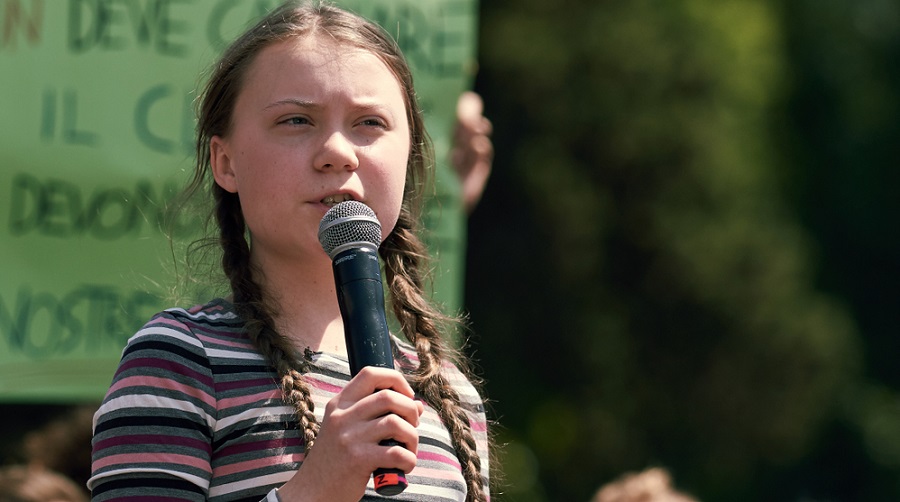When the controversy over Greta Thunberg’s tweet on farmers’ protests erupted in India, Charles Dickens burst into my memory. One of the unforgettable moments in the Dickensian oeuvre is in Oliver Twist. Oliver, famishing in the parish workhouse, dares to plead, ‘Please, Sir. A little more gruel.’ Bumble, the parish beadle, sees this timid cry as an insurrection. As per the workhouse rules, the inmates were required to be absolutely silent at meals. Oliver’s cry broke the rule. Dickens implies that the offence of an action is determined by regulations. Remove the rule and Oliver’s plea becomes innocuous. But with the rule in place, it is seditious, so to speak.
If I were to teach the text today, I would connect it to Plato’s Allegory of the Cave in the Republic. Its inmates live as spectators of shadows. One of them goes out and encounters the truth. So long as he keeps the truth he knows to himself, there’s no problem. But what if he were to return to the Cave and liberate its inmates from their vacuous existence? He may; indeed, he must. But there’s a price to pay. “They will kill him,” writes Plato, “if they manage to lay their hands on him!”
Socrates, Plato’s mentor, faced this conundrum. As a philosopher, he did his best to lead the youth of Athens to truth. This made him, as a citizen, guilty of ‘impiety’. He was accused of corrupting them. The Socratic predicament raises the following question: can a citizen be also a truth-seeker? To tell the truth, is to tell it ‘as it is’. But who has the right to know the given situation as it is? Can the individual’s liberty to know and share the truth exceed the right of the State to take care of itself? Didn’t Baruch Spinoza maintain in the 17th century that there is “no higher law” for a commonwealth “than the safety of his realm”?
This is where Greta comes in, presumably armed with conspiracies against India. It is bad enough if a citizen presumes the right to describe a situation as he thinks it is. But outsiders like Rihanna, Greta, et al? They add a measure of complication to the ‘truth versus State’ dynamics that Plato could not have foreseen. How can outsiders know ‘the situation as it is’? Well, they don’t. Then why do they meddle with our affairs? There’s only one explanation: they are conspirators. After all, aren’t we living in a world of conspiracy theories? Controversies, fortified with relentless propaganda, have the power to galvanize a people more potently than any of the old-world religions.
Let us return, briefly, to Oliver’s ‘asking for more’. Dickens constructs this scene in defiance of Newton’s third law of motion: action and reaction are equal and opposite. This law reflects the symmetry and reciprocity in nature. One body cannot exert a force on another without provoking a corresponding reactive force. Dickens makes Bumble react to the cry of a starving boy with disproportionate force. He overpowers and stigmatizes the boy. Oliver’s cry is turned into a primal offence via Bumble’s overreaction. Dickens means that this offence is not intrinsic to the action, but contrived and ascribed. Oliver does not have the right to decide whether he intended offence or not. That right rests solely with the parish establishment.
To the workhouse, its interests are supreme. It enjoys the right to frame the laws. Who doesn’t know that laws are framed, argues Leo Tolstoy, with an eye to preserve the interests of the elite? Also, what is good for common folks is decided for them by those who, unlike them, know what is what, and, therefore, what is good for them. Once again, the ordeal of truth comes to the fore. Who shall decide what is in the best interests of the farmers and, therefore, the truths pertaining to how they are pursued?
That brings us to Vincent van Gogh’s depictions of peasant life. Look, in particular, at the one depicting a pair of peasant boots. The artist invests the rustic, muddy, over-worn pair of boots with power and poignancy, immortalizing the mud-slaked boots as a witness to the grimness and forlornness of the peasant as he struggles to bring out the goodness of the earth to feed his fellow men. The truth is that our policymakers, political strategists and fly-by-night desh bhakts know not the sweat and struggle that underlie the food on their tables. How do you think the striking farmers have endured, in the bitter wintry chill, for as long as they have? Well, look, again, at van Gogh’s paintings. The farmers are steeled by the rigour of their life. They are living their protest.
This is, alas, bad optics. The international attention must be negotiated with dignified restraint. It does not behove the stature of India to play Bumble to private opinion-makers beyond our borders. Public sentiments are culturally toned. Western societies value personal liberty and freedom of expression. As in Dickens’s workhouse, we can modulate the matrix of legitimacy to suit national interests. Our national interests are unlikely to be understood and embraced by the rest of the world exactly as we do. Asymmetry in reactions betrays lurking insecurity. Sending a ‘strong’ signal to the citizenry in India may be read differently by others.











